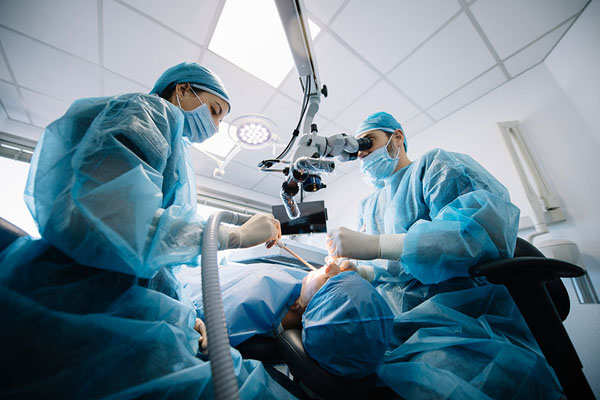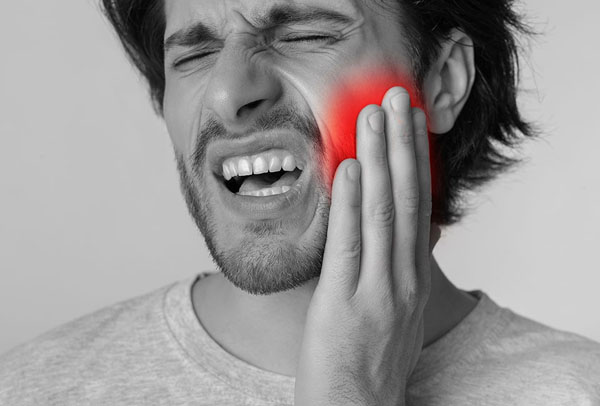Handling Dental Trauma Before Visiting a Dentist at Off the Trace Dental!
Accidents happen, and dental emergencies in Slidell can occur unexpectedly, causing pain and distress. Knowing how to handle dental trauma promptly and appropriately can make a significant difference in preventing further complications.
If you’ve experienced traumatic dental injuries, don’t fret. Dr. Pamela Daigle is one of the best dentists in Slidell for emergency dentistry, but it’s wise to be prepared for a situation before being able to see a dentist. We also proudly serve patients coming from Ama, Taft, Holden, and the surrounding areas.

Care That Goes Beyond the Chair With Dr. Pamela Daigle!
If you’re dealing with a dental emergency, you may be looking for one of the best dentists in Slidell. Dr. Pamela Daigle believes great dentistry isn’t just about treatments—it’s about building trust. As a graduate of Louisiana State University’s School of Dentistry, she brings years of professional experience to every appointment. But what truly sets her apart is her dedication to treating patients like people, not just charts. She takes time to get to know you, listens to your concerns, and creates a calm, supportive space where you always feel welcome. With Dr. Daigle, your care goes beyond the dental chair—it’s a partnership built on respect, compassion, and lasting results.
What Is Dental Trauma?
Dental trauma refers to injuries that affect the teeth, gums, lips, tongue, or surrounding tissues due to various causes such as accidents, sports-related incidents, or falls. These injuries can vary in severity, ranging from mild chipping to complete tooth avulsion.
Recognizing Dental Injury Signs and Symptoms
The first step in providing aid for dental injuries is recognizing them. Here are some common signs and symptoms of dental trauma:
- Pain or Discomfort: This could range from mild sensitivity to intense pain, particularly when chewing or exposed to hot or cold temperatures.
- Visible Damage: This includes chips, fractures, or complete displacement of the tooth.
- Bleeding: Injuries to the gums, lips, or other soft tissues may lead to bleeding.
- Swelling: Inflammation of the affected area, including the gums, lips, or cheeks, may occur.
- Loose or Misaligned Teeth: A tooth might feel loose in its socket, or it may appear to be pushed to the side, out of its normal alignment.
- Changes in Bite: If the teeth are not aligned properly due to trauma, it can affect the way the teeth come together, possibly causing discomfort or difficulty chewing.
- Numbness: Sometimes trauma can affect nerves, leading to numbness or altered sensation in the affected area.
- Discoloration: A tooth that has suffered trauma may change color. It might appear gray or dark yellow, indicating potential damage to the internal blood vessels or nerves.
- Difficulty Opening or Closing the Mouth: This could indicate more serious injuries, possibly involving the jaw.
- Gum or Soft Tissue Lacerations: Cuts or tears in the gums, lips, or cheeks might be present.
- Pulp Exposure: If a tooth is fractured significantly, the pulp (the innermost part of the tooth) might be exposed, often appearing as a red or pink spot in the center of the tooth.
- Abscess or Infection: If untreated, dental trauma may lead to an abscess or infection, presenting with swelling, pain, pus discharge, or even fever.
- Emotional Distress: Especially in children, dental trauma can be a frightening experience, leading to anxiety or emotional distress.
Immediate Actions for Dental Trauma in Slidell, LA
When faced with dental trauma, acting quickly can make a substantial difference in preserving the affected teeth and tissues.
Stay Calm and Reassured
When faced with a dental injury, the first and most crucial step is to stay calm and reassure the injured person. Dental emergencies can be distressing, but maintaining a composed demeanor will help keep the situation under control and reduce anxiety.
Control Bleeding
If there’s any bleeding from the injured area, it’s essential to control the bleeding promptly. Apply pressure with a clean cloth or gauze to the affected area to staunch the bleeding. This will help manage the injury and make it easier to assess the extent of the damage.
Recover Tooth Fragments
In the case of a broken tooth, try to locate and collect any tooth fragments. These fragments may be valuable for potential reattachment by a dentist. Handle them carefully and keep them in a moist environment, such as a tooth preservation kit, milk, or saline solution.
Handle Avulsed Tooth Carefully
If a tooth is completely knocked out (avulsed), it’s essential to handle the tooth with care. Hold the tooth by its crown (the top part) and avoid touching the root. Touching the root can damage the delicate tissues that are crucial for reattachment.
Rinse With Saline Solution
If the avulsed tooth is dirty, it’s essential to rinse it briefly with a saline solution or milk. Avoid using water, as it can harm the root surface cells. Gently rinse the tooth without scrubbing to maintain its viability for potential reimplantation.
Contact Dr. Pamela Daigle
After taking immediate action for dental injuries, seek professional dental care from Off The Trace Dental as soon as possible. Dental emergencies require prompt evaluation and treatment by an emergency dentist near you or a dental trauma specialist. Contact your dental clinic or visit the nearest emergency dental facility for appropriate care. Remember, swift action can make a significant difference in preserving teeth and tissues during dental emergencies.
Dental First Aid Kit Essentials
Having a well-equipped dental first aid kit at home or while traveling can prove invaluable during dental emergencies. Here are some essential items to include in your kit:
- Gauze or Clean Cloth
- Saline Solution
- Pain Relievers (Ibuprofen)
- Cold Compress
- Cotton Swabs
- Dental Floss
How to Manage Dental Pain Near Holden, LA
Dental injuries can cause significant pain and discomfort. Managing dental pain effectively may include:
- Over-the-Counter Pain Relievers: Use pain relievers like ibuprofen or acetaminophen as directed.
- Cold Compresses: Apply a cold compress to the affected area to reduce swelling and alleviate pain.
- Avoid Hot and Cold Foods: Temporarily avoid consuming extremely hot or cold foods and beverages.
- Soft Diet: Stick to a soft diet that doesn’t require excessive chewing.
- Avoid Pressure: Refrain from putting pressure on the injured tooth or surrounding area.
Dental Trauma Treatment Options in Slidell, LA
For those who have experienced dental trauma, seek professional care as soon as possible. Don’t wait to seek care and let your injured teeth cause other complications. Various dental trauma treatments can get your oral health back on track.
Chipped or Fractured Teeth
- Minor tooth fractures can be smoothed by a dentist near you, or filled with a tooth-colored resin material.
- More severe fractures might require a crown or, in cases where the pulp is exposed, root canal therapy.
Dislodged (Luxated) Teeth
- The tooth may be repositioned and stabilized by a dentist.
- Root canal therapy might be required, and this is generally started a few weeks after the injury.
Knocked-Out (Avulsed) Teeth
- Seek emergency dental care as quickly as possible.
- Dr. Pamela Daigle might reposition and stabilize the tooth, and root canal treatment may be required.
Root Fractures
- Treatment will vary depending on the location and extent of the fracture.
- Stabilization and a splint may be required, and the tooth will be monitored for healing.
Soft Tissue Injuries
- Clean the wound with mild soap and warm water.
- Visit a dentist or oral surgeon near you who may suture the wound if necessary.
Injury to the Jaw
- A potential broken or dislocated jaw requires immediate medical attention.
- Treatment may include bandages, wires, or surgery, depending on the severity of the injury.
Pulpal (Nerve) Injuries
- Depending on the type and extent of the dental injury, treatment may include monitoring, root canal therapy, or other types of pulp care.
Frequently Asked Questions
Where can I find emergency dental care near me?
If you’re experiencing a dental emergency, such as a severe toothache, swelling, or a broken tooth, it’s important to act quickly. For patients in Slidell, LA, Off The Trace Dental provides fast, compassionate emergency dental care. Call (985) 214-2844 to schedule a same-day visit or to speak with our team about urgent concerns.
Does an emergency dentist offer payment plans?
Yes, many emergency dentists offer flexible payment plans to make care more affordable—especially when urgent treatment is needed. At Off The Trace Dental, we believe no patient should delay care due to cost. Our team can walk you through financing options or payment plans so you can get the help you need without added financial pressure.
Can I visit an emergency dentist without insurance?
Absolutely. You can still receive emergency dental treatment without insurance. Off The Trace Dental welcomes uninsured patients and offers affordable self-pay options and flexible financing to ensure you don’t have to wait in pain. Contact us to learn more or to schedule an immediate appointment.
Seek Treatment at Off the Trace Dental After Experiencing Dental Trauma in Slidell, LA!
Handling dental trauma effectively requires swift action, preparation, and professional help. By being aware of the necessary first aid measures and seeking timely dental care, you can minimize the impact of dental injuries and improve the chances of successful recovery.
During times of emergencies and dental trauma, Off The Trace Dental is here for you. Dr. Pamela Daigle welcomes you to call our Slidell dental office right away at (985) 326-1711 so we can help get you the prompt dental care you need.


